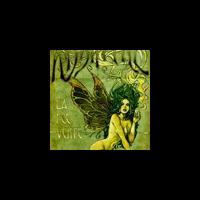Esperanto estas seeping into my Japanese.
kelle poolt Aubright, 2. veebruar 2013
Postitused: 30
Keel: English
Aubright (Näita profiili) 2. veebruar 2013 6:02.33
Demian (Näita profiili) 2. veebruar 2013 6:32.41
Aubright:...I was curious if this happens/ has happened to any of you with languages you have studied.This has happened several times to despite that I am no fluent speaker.
It does feel strange when you remember "altrude" but forget "impose" and "thopna" (Punjabi) and "marhna" (Hindi/Urdu). Then you have to turn to Esperanto dictionary to find out what the word was in your language. I did that this week.
sudanglo (Näita profiili) 2. veebruar 2013 11:00.42
scorpjke (Näita profiili) 2. veebruar 2013 11:39.34
And wa in Japanese does not mean is, am, are at all. It is a so-called theme paeticlewhich you normally put after the subject (but still not always) to show what you are describing. I understand why wa might seem to be a copula - because in a simple sentence construction "A is B" which is "A wa B (desu/da)" the copula "da" is omitted in colloquial speech if it is not followed by end-sentence particles like yo and/or ne and ohers like kara, kedo.
So you shouldn't confuse estas with wa ^^
Ganove (Näita profiili) 2. veebruar 2013 12:36.06
Aubright:[...] I was curious if this happens/ has happened to any of you with languages you have studied.Oh yeah, just a few weeks ago. I tried to speak Spanish with a boy from Barcelona and I used the Esperanto "manĝi" instead of the Spanish "comer" but I was amazed that he understood the word "manĝi" because then he said that "manĝar" is Catalan and not Spanish and since Catalan is his native language he understand what I tried to say.
Maybe Zamenhof adopted the Catalan "manĝar" and adapted it to the Esperanto "manĝi".
Breto (Näita profiili) 2. veebruar 2013 14:43.05
Though it doesn't happen much anymore, because it has sadly been years since I've had occasion to practice my German, every so often I'll find myself dropping German words like ja, echt, or ohne into my English, too.
whysea (Näita profiili) 2. veebruar 2013 16:05.05
I remember at work one time I was trying to tell a lady that we'd receive a delivery on Saturday, and I said "sabato" instead of Spanish "sábado"...luckily they're close enough that she understood haha.
Aubright (Näita profiili) 2. veebruar 2013 16:54.25
erinja (Näita profiili) 3. veebruar 2013 0:21.39
Ganove:Maybe Zamenhof adopted the Catalan "manĝar" and adapted it to the Esperanto "manĝi".Unlikely. He probably got it from the French "manger".
-----
As a beginner in Yiddish, I had issues with Esperanto seeping in, especially if I had just returned from an Esperanto event. However I have not generally had issues, now or in the past, with Esperanto influencing my English after returning from a long event.
verdafeino (Näita profiili) 3. veebruar 2013 2:48.50
I catch myself starting an English sentence with "ĉu" or ending with "ĉu ne?" sometimes. I almost say "nu..." too, when I'm thinking of what to say next.





